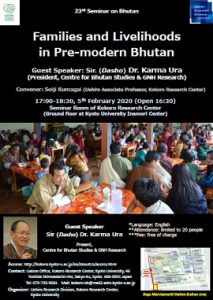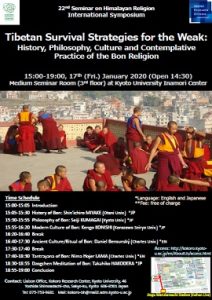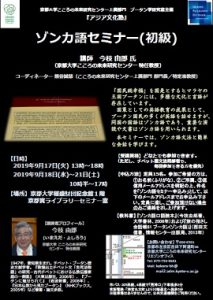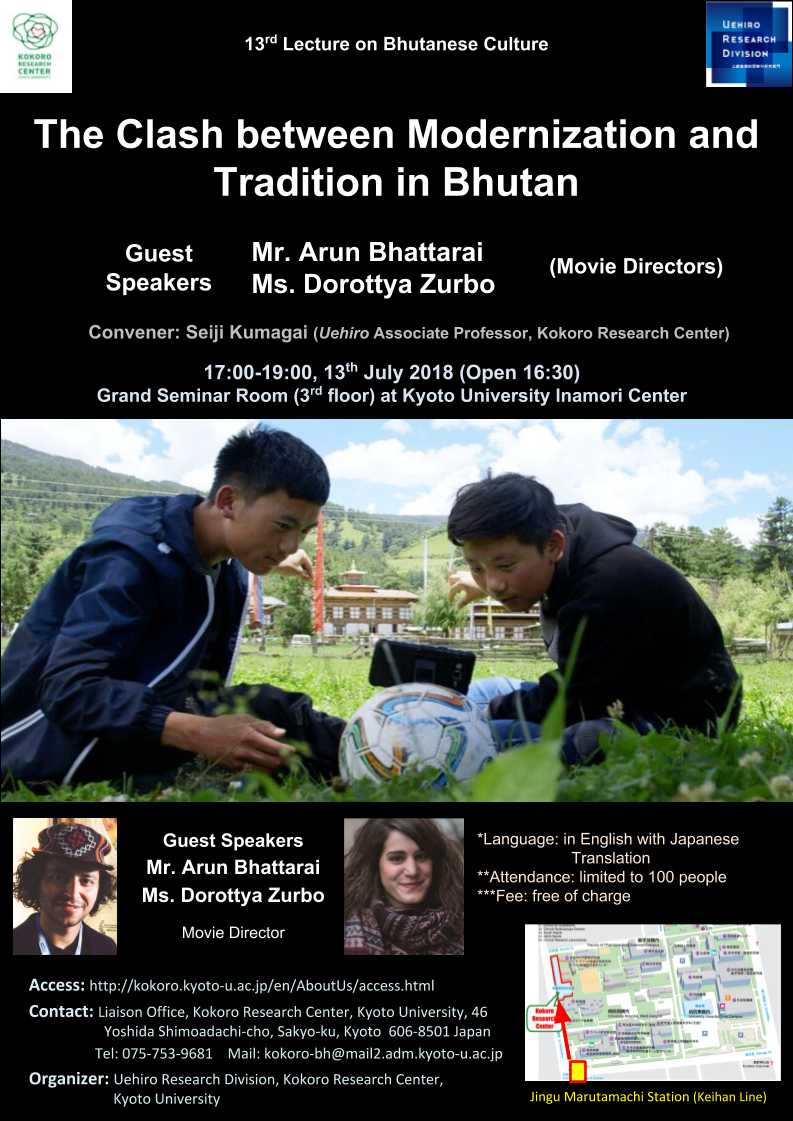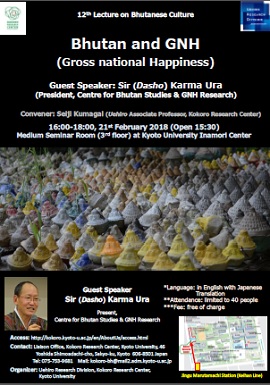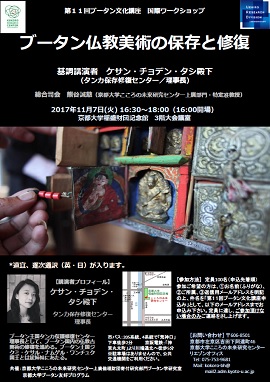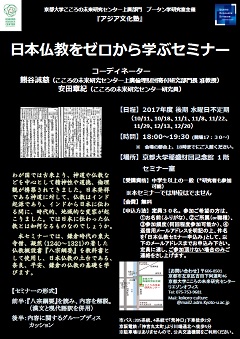The department of Bhutanese Studies, Uehiro Research Division at Kokoro Research Center has regularly organized Seminars on Himalayan Religion. In the 21st Seminar, the honorable guest speaker Dr. Pascale Dollfus (Chargée de recherché, CNRS) will talk about the Shaman among the Sherdukpens, West-Kameng District, Arunachal Pradesh in India.
Date: Tue. 24 December 2019
Time: 17:00-19:00
Place: Medium Seminar Room (3rd floor) at Kyoto University Inamori Center
(46 Shimoadachi-cho, Yoshida Sakyo-ku, Kyoto)
MAP: http://kokoro.kyoto-u.ac.jp/en2/access-en/#honkan
Guest Speaker: Dr. Pascale Dollfus (Chargée de recherché, CNRS)
Tentative title: To Be a Shaman among the Sherdukpens, West-Kameng District, Arunachal Pradesh.
*Language: in English with Japanese translation
**Attendance: limited to 50 people
***Fee: free of charge
Contact: Liaison Office, Kokoro Research Center, Kyoto University, 46 Yoshida Shimoadachi-cho, Sakyo-ku, Kyoto, 606-8501 Japan.
Tel: 075-753-9681 Mail: kokoro-bh*mail2.adm.kyoto-u.ac.jp (Please replace * with @.)
Abstract
The Sherdukpens or more accurately Sertukpens, are a population of about 4,000 who live in West Kameng district in the State of Arunachal Pradesh (“The Land of Dawn-Lit Mountains”), located in North-East India. They are referred to as Buddhists in the Indian census.
Buddhism was introduced among Sherdukpens in the mid-18th century. Today there are small Buddhist temples, stūpas, and prayer walls in almost every village. Most Sherdukpens have Buddhist names and, for funerals, they call upon Buddhist monks and married priests who, for the most part, are natives of Bhutan or the Tawang region. In fact, up until the last decade, there were no Sherdukpens among the Buddhist clergy. It was obviously not their concern.
Today Buddhism is still considered a foreign religion, quite different from the local religion which is qualified by those who speak English as “naturalistic” because all the gods, spirits, and demons inhabit elements of the landscape: mountains, forests, rocks, rivers, caves, and so forth. These invisible forces fall into two broad categories: good or potentially benevolent spirits, referred to as lo and including ancestral deities (khiks), and evil spirits or demons called dẽ. Associated with dẽ because of their malicious power and the fear they spread, bising are spectral figures whose appearance and size change at whim.
Three religious experts are responsible for smoothing out any difficulties in the cohabitation between spirits and men, and sometimes among men themselves through the intervention of a spirit:
– khikzizis, who are priests dedicated to cults of ancestral deities (khiks) and carry out community rituals;
– zizis, who are household priests and perform rituals centered on the individual and the family; and
– raomas (or raomats), who are shamans and are regarded as “super zizis”.
It is the last of these who interest me here and to whom I’ll be devoting my lecture. I’ll be describing how one doesn’t decide to be a raoma – one is ‘caught’ by a deity –, and I’ll be recounting a séance I was lucky to attend, backed by photos and videos. The raoma is not just an intercessor; he travels to the nonhuman world to meet the spirits, to talk to them and even fight them. Only his “bodily envelope” stays in the house where he operates.

